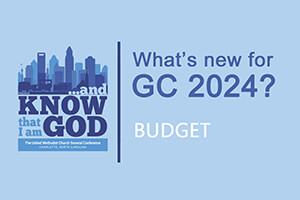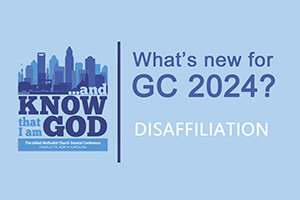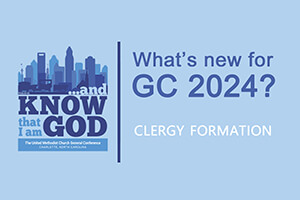Series focuses on new ADCA items
A newly published section of the Advance Daily Christian Advocate contains additional petitions and updated reports for United Methodist delegates to consider as they prepare for General Conference.
Ask The UMC has prepared a series of articles that give an overview of the changes.
In late January, a draft version of Volume 3, Section 1, of the Advance Daily Christian Advocate was published on the General Conference website. This volume represents mostly new and updated legislation submitted during the final legislative window from late spring through September 6, 2023, 230 days prior to the rescheduled General Conference in Charlotte (April 23-May 3, 2024).
The final version of all previously submitted legislation is available at no cost to delegates via the Daily Christian Advocate website. This is available to non-delegates for a one-time fee of $49.95.
Not everything in Volume 3 is new. Some of this legislation is over four years old. Both the Christmas Covenant and the so-called Protocol legislation were submitted by annual conferences after the deadline set for the originally scheduled General Conference session in 2020. A proposal to change the official insigne of the denomination, the Cross and Flame, submitted by the North Texas Conference, appears here as well. By Discipline, only items that are submitted prior to the 230-day deadline are included in the ADCA. But the General Conference may also consider items submitted by annual conferences if they meet between 230 and 45 days prior to the General Conference. That is why these three items were not in Volume 2 but are included in Volume 3 of the ADCA.
Volume 3 also has a substantially larger number of petitions to readopt items in the Book of Resolutions than is usually seen. This is because petitions automatically expire after eight years. The last regular session of the General Conference was in 2016 (eight years ago). This means the entire current Book of Resolutions will expire unless individual items are readopted or amended and adopted.
Updated reports from the general agencies reflect the progress of their work since they submitted their original reports in 2019. These can be found in the section related to the legislative groups that will process petitions regarding agencies’ work. Some reports also outline significant new initiatives agencies are planning to undertake. General agency reports are not legislation themselves, but they are received by action of the General Conference. You will want to review the original reports in Volume 2 and the updated reports in Volume 3 to get the full scope of the work of the general agencies over the past eight years and their plans for the quadrennium to come.
While the newly published legislation in Volume 3 addresses topics across all of the 14 legislative committees and the Standing Committee on Central Conference Matters, there are four kinds of items that are likely to be given the most significant attention within this volume: Regionalization, the budget and its implications for the work of the continuing United Methodist Church, proposals to restore and expand a process for disaffiliation, and matters related to higher education and ordained ministry.
Our “What is Regionalization” series covered the regionalization legislative package most recently submitted by the Standing Committee on Central Conference Matters. This legislative package builds on the previously submitted Christmas Covenant legislation and further expands the scope of what regional conferences could do.
A region may publish its own regional Book of Discipline rather than merely create an addenda package of the alterations it has made. Similarly, each region may create its own hymnal and ritual rather than publishing supplements to the churchwide hymnal and ritual published in the United States. There is also greater flexibility for annual conferences to be structured to meet their particular contexts.
Finally, the Standing Committee’s legislation requires each region to adopt clear rules regarding judicial procedure related to the complaint process against clergy and laypersons, from investigation through church trial. This ensures that while the specifics of judicial procedure may vary from region to region, there is identified and well-documented judicial procedure to be followed uniformly within each region.
The Connectional Table has endorsed and is promoting the Standing Committee’s regionalization package.Part 1 of this series will explore the proposed general church budget. While a version of the proposed budget appears in Volume 3 of the ADCA, some elements of it have since been further revised. As always, the final form of the budget the General Conference will consider and adopt remains in process. This article will be regularly updated if there are substantial additional changes to the proposed budget prior to the General Conference.
Part 2 will look at the various petitions that seek to re-start a process of disaffiliation and expand it across the worldwide church.
Part 3 will address newly submitted legislation regarding higher education and ordained ministry from the General Board of Higher Education and Ministry and the Alabama-West Florida Conference.

The Budget

Disaffiliation






